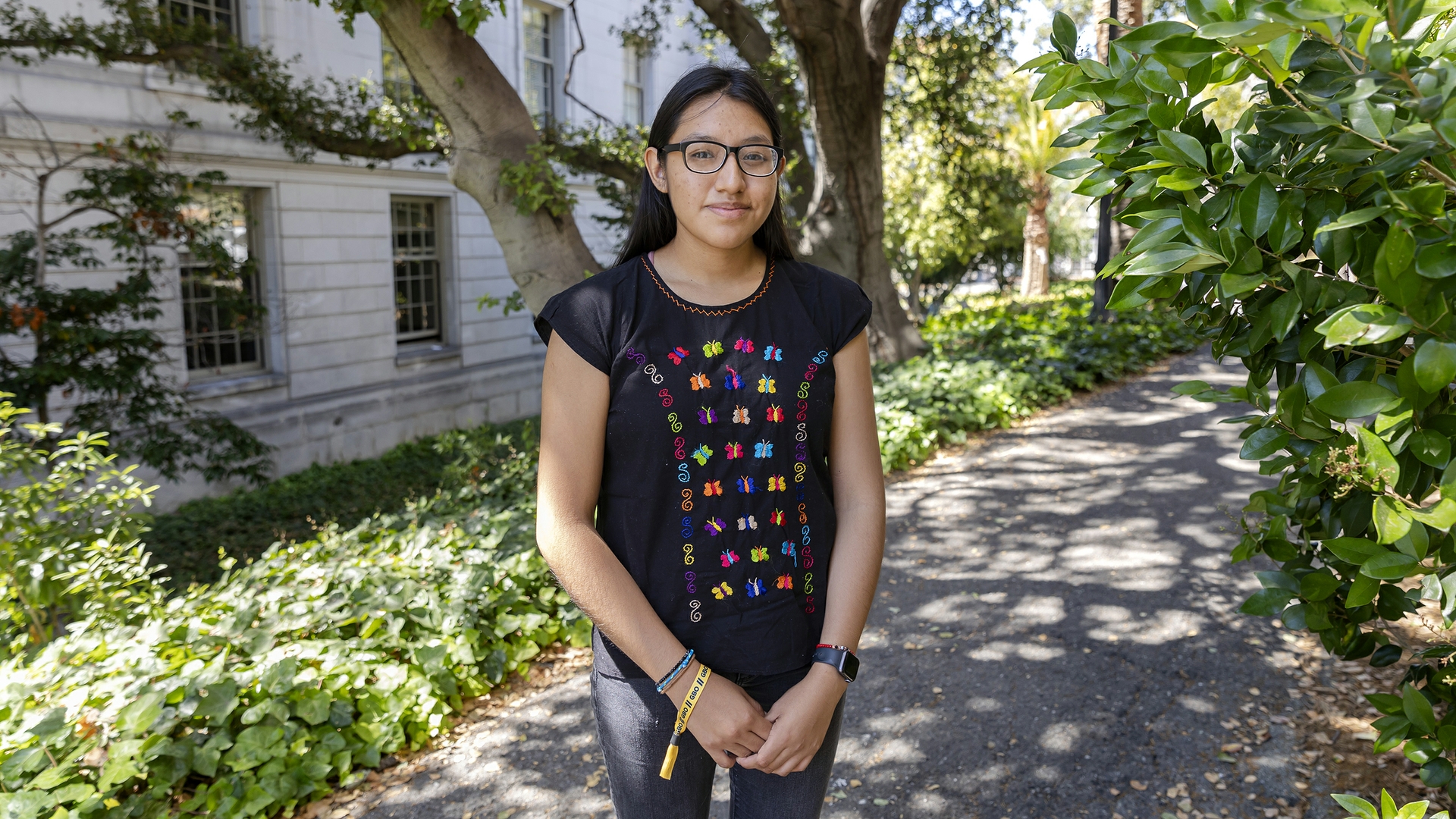For new student, community work is about addressing each generation’s needs
Naydelin Chimil, a transfer student from Santa Monica College who grew up in the West Lake neighborhood of L.A., plans to major in society and environment at UC Berkeley

Brittany Hosea-Small for UC Berkeley
August 25, 2023
This Q&A is part of a series of new student profiles for our 2023 back-to-school
coverage. Have someone you think we should write about? Contact [email protected].
Berkeley News: What year are you, and what is your major?
Naydelin Chimil: I’m a transfer student from Santa Monica College in L.A., and I’m majoring in society and environment. I’ve always liked the environment, and I really like working with communities, so I thought this major fit my interests well.
What sort of work have you done with communities and the environment?
In Los Angeles, I was working with a nonprofit to give low-income communities no-cost solar panels in their homes. I also volunteered for L.A. Compost weekly and on the weekends with their farmers market, helping the people that came in and teaching them about composting.
What kinds of research and jobs interest you most?
I really like to be out in the field, learning and investigating. In my current research internship with NEON (National Ecological Observatory Network), we went out in the Sierra Nevada Mountains to study beetles. We hiked up to different plot locations to set up litterfall traps in order to investigate which locations beetles like the most. That was really fun. So I’m thinking about field biology maybe a field biology technician or working in the government sector, like urban planning.
When you’re working with a community, what do you feel is the most important to keep in mind?
Because I mainly do my community work with low-income and people of color neighborhoods, it is important to understand the needs of different generations. Youth, adults and senior citizens have different needs. I grew up in a low-income neighborhood in L.A., where the city did not focus on each of our needs, especially youth.
What are the needs of the different generations that you’ve seen?
I used to be an L.A. city youth councilmember. We would hold a lot of listening sessions, but we were mainly focused on the youth, so I can speak more about them. For youth, it was mainly about creating easy access to mental health resources and access to therapists who share a cultural background. With younger kids, it was more about tutoring and education. With adults, I would say, it was more about mental health, but also access to financial and food resources, stuff like that.
I loved that work because I got to meet people who were my age who were passionate advocates. That’s why I chose Berkeley, because it’s a school known for advocacy. I really want to participate in protests.
What type of things did you learn were affecting younger peoples’ mental health?
Most of it was academic, like academic stress and trying to fit in and trying to keep up their image of being smart and very on top of things.
Have you felt that way?
Mainly for me, it’s imposter syndrome. I just have felt like sometimes I don’t belong in a certain place, but it’s also a reminder that I’m here for a reason.
Have you been to protests before?
I’ve never been to a protest. That’s why I’m so excited for one to happen here.